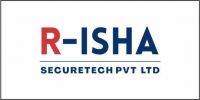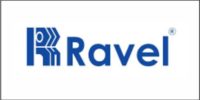 Online banking has become an integral part of modern business operations, offering convenience and efficiency. However, ensuring the security of online banking information is paramount to safeguard sensitive financial data. Here are some strategies for businesses to protect their online banking information:
Online banking has become an integral part of modern business operations, offering convenience and efficiency. However, ensuring the security of online banking information is paramount to safeguard sensitive financial data. Here are some strategies for businesses to protect their online banking information:
- Implement Strong Password Policies:
- Encourage employees to create strong, unique passwords for their online banking accounts.
- Emphasize the importance of avoiding common passwords, such as birthdays or easily guessable phrases.
- Consider implementing a password management system to securely store and manage passwords across the organization.
- Enable Multi-Factor Authentication (MFA):
- Require employees to enable MFA for accessing online banking accounts.
- Utilize biometric verification, one-time codes, or hardware tokens as additional authentication factors.
- MFA adds an extra layer of security, making it harder for unauthorized users to gain access even if they have the password.
- Educate Employees on Phishing Awareness:
- Train employees to recognize phishing attempts and suspicious emails that may impersonate banks or financial institutions.
- Encourage employees to verify the authenticity of emails or links before providing any sensitive information.
- Establish clear protocols for reporting and handling suspected phishing incidents within the organization.
- Secure Network Infrastructure:
- Ensure that the organization’s network infrastructure, including Wi-Fi networks, is secure and regularly updated.
- Implement firewalls, intrusion detection systems, and encryption protocols to protect against unauthorized access and data breaches.
- Restrict access to online banking systems only to authorized devices and users within the organization.
- Monitor Account Activity:

- Set up real-time alerts for unusual or suspicious activities, such as large transactions or failed login attempts.
- Regularly review account statements and transaction logs to detect any unauthorized transactions or discrepancies.
- Establish procedures for promptly reporting and investigating any suspected fraudulent activities.
- Stay Informed About Security Updates:
- Keep abreast of security updates and patches provided by banks or financial institutions for their online banking platforms.
- Regularly update software, operating systems, and security protocols to address any known vulnerabilities or threats.
- Maintain open communication channels with banking partners to stay informed about emerging security threats and best practices.
By implementing these measures, businesses can enhance the security of their online banking information and minimize the risk of financial fraud or data breaches. Prioritizing security awareness, robust authentication mechanisms, and proactive risk management is essential for safeguarding sensitive financial assets in today’s digital landscape.























































